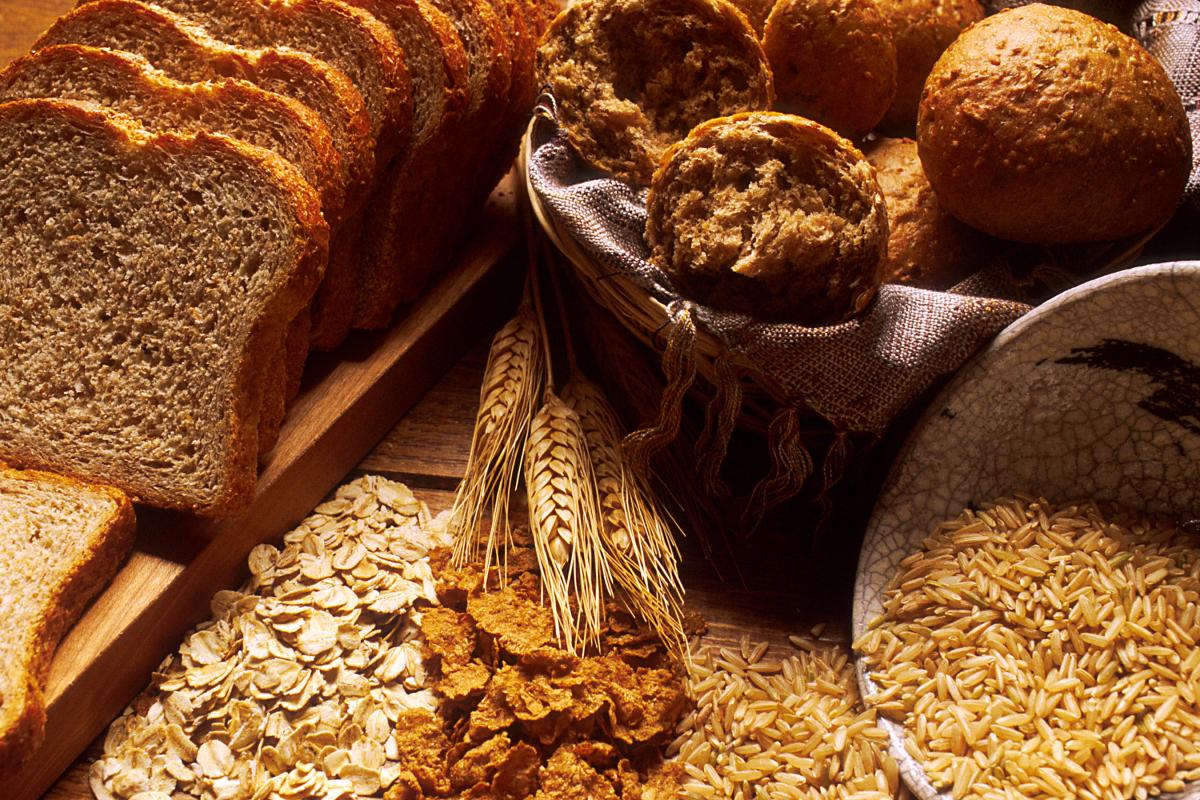
By Candace H. Chemtob, MS, RD, LD, CSSD
Carbohydrates are often misunderstood. Conflicting information regarding carbohydrates (carbs) is abundant and this doesn’t help. The latest diet craze, the Paleo diet, has only added to the confusion. The Paleo diet promotes a high protein, high fat, low carb diet based on the dubious premise that it is healthier to eat like “cavemen”. The “Grain Brain” also promotes a low carb diet and blames carbs for Alzheimers, dementia, and depression. Given all the hype and misinformation, the belief “carbs are bad” is widespread. In this article the role of carbohydrates in general, and specifically for athletic performance, will be reviewed.
First, let’s start with basic terminology. There are two types of carbs, simple and complex. Simple carbs are commonly referred to as “sugar”. Sugars have many names such as sucrose (table sugar), glucose, lactose, corn syrup, galactose, and more. When simple carbs are joined together into long chains they form complex carbs. Complex carbs are starches and grains like bread, rice, pasta, and potatoes. Whole grains are the preferred source of complex carbohydrates. Processed grains, such as white breads or rice, are stripped of most fiber, vitamins, and minerals.
The main function of carbs is to provide a quick source of energy for the body and brain. Digestion, or break down, of carbs begins in the mouth and continues in the stomach with the bulk taking place in the first part of the first part of the small intestines. Most carbohydrates, whether candy or brown rice, are eventually broken down into a simple sugar called glucose. Glucose is absorbed into the bloodstream. As blood glucose levels rise, insulin is released. Insulin allows glucose to enter the body’s cells. Inside the cells, glucose is further broken down through complex metabolic pathways and eventually energy is released. This energy is used to fuel all the body’s functions including as breathing, generating new cells, making proteins and blood cells, and contracting muscles.
Carbohydrates are essential. The brain and other nervous system cells run on carbs alone, unlike other cells that can also use fat as a source of energy. The human brain comprises only 2 to 3% of our body weight, yet it uses twenty percent of our daily energy requirements. For example, if you need 2,500 calories your brain is consuming approximately 500 calories per day. To put this in perspective, this is the amount of energy required to run 5 miles.
Severe carbohydrate restriction can result in a loss of muscle mass. The minimum requirement for dietary carbs is 130 g per day (www.joslin.org). The Paleo diet recommends intakes as low as 50 g carb per day. During carb deprivation, the brain will trigger the breakdown of muscle mass to release proteins that are converted into glucose to properly fuel the brain. This fact is largely ignored by proponents of low carb diets. Athlete or not, severe carbohydrate restriction is never advised.
Peak athletic performance is fueled by carbohydrates. The source of carbs during exercise is primarily glycogen, which is the storage form of carbohydrates found in muscles and the liver. As glycogen stores become depleted, and blood sugar (glucose) levels will begin drop and fat stores are used as fuel. Fat does not provide energy fast enough to support peak output and high intensity movement and athletes will experience extreme fatigue (often referred to as hitting the wall). Restricting carbs, as is recommended by the Paleo or Brain Drain Diets, will decrease your performance on the court.
Nutrition experts agree that a healthy diet is rich in carbohydrates. For the general population, it is recommended that 40 to 50% of total daily calories are from carbohydrates. The American College of Sports Medicine and the American Dietetics Association recommend up to 60% for athletes. If chosen wisely, carbs can be rich in nutrients such as vitamins, minerals, antioxidants, and fiber.
Try to ignore all the hype, and eat a healthy diet that includes whole grains, fruits, and vegetables. Restricting carbs has negative health effects and will lead to suboptimal athletic performance, so enjoy your carbs! Sounds like a win-win on and off the court!





